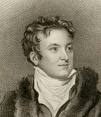William Charles Macready 1793 - 1873
December 10, 2008
- 1873 was an English actor.
William Charles Macready was a patient of homeopath Frederick Hervey Foster Quin, and he was also a patient of John Elliotson.
William Charles Macready was a friend of Thomas Carlyle, Charles Dickens (Claire Tomalin, Charles Dickens: A Life, (Penguin Group US, 27 Oct 2011). Page 47), Benjamin Disraeli, Count D’Orsay, Ralph Waldo Emerson, John Forster, Edward Bulwer Lytton and James John Garth Wilkinson, and he knew William Cullen Bryant.
William Charles Macready was born in London, and educated at Rugby.
It was his intention to go up to Oxford, but in 1809 the embarrassed affairs of his father, the lessee of several provincial theatres, called him to share the responsibilities of theatrical management.
On 7 June 1810 he made a successful first appearance as Romeo at Birmingham. Other Shakespearian parts followed, but a serious rupture between father and son resulted in the young man’s departure for Bath in 1814. Here he remained for two years, with occasional professional visits to other provincial towns.
On 16 September 1816, Macready made his first London appearance at Covent Garden as Orestes in The Distressed Mother, a translation of Racine’s Andromaque by Ambrose Philips. Macready’s choice of characters was at first confined chiefly to the romantic drama. In 1818 he won a permanent success in Isaac Pocock’s (1782-1835) adaptation of Walter Scott’s Rob Roy. He showed his capacity for the highest tragedy when he played Richard III at Covent Garden on 25 October 1819.
Transferring his services to Drury Lane, he gradually rose in public favor, his most conspicuous success being in the title role of James Sheridan Knowles’s William Tell (11 May 1825). In 1826 he completed a successful engagement in the United States, and in 1828 his performances met with a very flattering reception in Paris.
On 15 December 1830 he appeared at Drury Lane as Werner, one of his most powerful impersonations. In 1833 he played in Antony and Cleopatra, in Lord Byron’s Sardanapalus, and in King Lear. He was responsible, in 1834, and more fully in 1838, for returning the text of King Lear to the Shakespeare’s text (although in a shortened version), after it had been replaced for more than a hundred and fifty years by Tate’s happy ending adaptation, The History of King Lear.
Already Macready had done something to encourage the creation of a modern English drama, and after entering on the management of Covent Garden in 1837 he introduced Robert Brownings Strafford, and in the following year Edward Bulwer Lytton’s Lady of Lyons and Richelieu, the principal characters in which were among his most effective parts.
On June 10, 1838 he gave a memorable performance of Henry V, for which Stanfield prepared sketches, and the mounting was superintended by Edward Bulwer Lytton, Charles Dickens, John Forster, Daniel Maclise, W J Fox and other friends.
The first production of Edward Bulwer Lytton’s Money took place under the artistic direction of Count D’Orsay on 8 December 1840, Macready winning unmistakable success in the character of Alfred Evelyn. Both in his management of Covent Garden, which he resigned in 1839, and of Drury Lane, which he held from 1841 to 1843, he found his designs for the elevation of the stage frustrated by the absence of adequate public support.
In 1843 he staged Cymbeline. In 1843-1844 he made a prosperous tour in the United States, but his last visit to that country, in 1849, was marred by a riot at the Astor Opera House, New York, arising from the jealousy of the actor Edwin Forrest, and resulting in the death of twenty three persons and the further injuring of one hundred, who were shot by the militia called out to quell the disturbance. Macready was playing Macbeth at the time of the riot, a fact which added to the ominous reputation of that play.
Macready took leave of the stage in a farewell performance of Macbeth at Drury Lane on 26 February 1851.
The remainder of his life was spent in happy retirement, and he died at Cheltenham on 27 April 1873. He had married, in 1823, Catherine Frances Atkins (d. 1852). Of a numerous family of children only one son and one daughter survived. In 1860 he married Cecile Louise Frederica Spencer (1827-1908), by whom he had a son.
Macready’s son was Nevil Macready, a distinguished British Army officer. The actor George Macready claimed to be a descendant.
Of interest:
Michael Mcready was the homeopathic practitioner of Benjamin Britten and John Egerton Christmas Piper in 1963,
 William Charles
Macready
William Charles
Macready